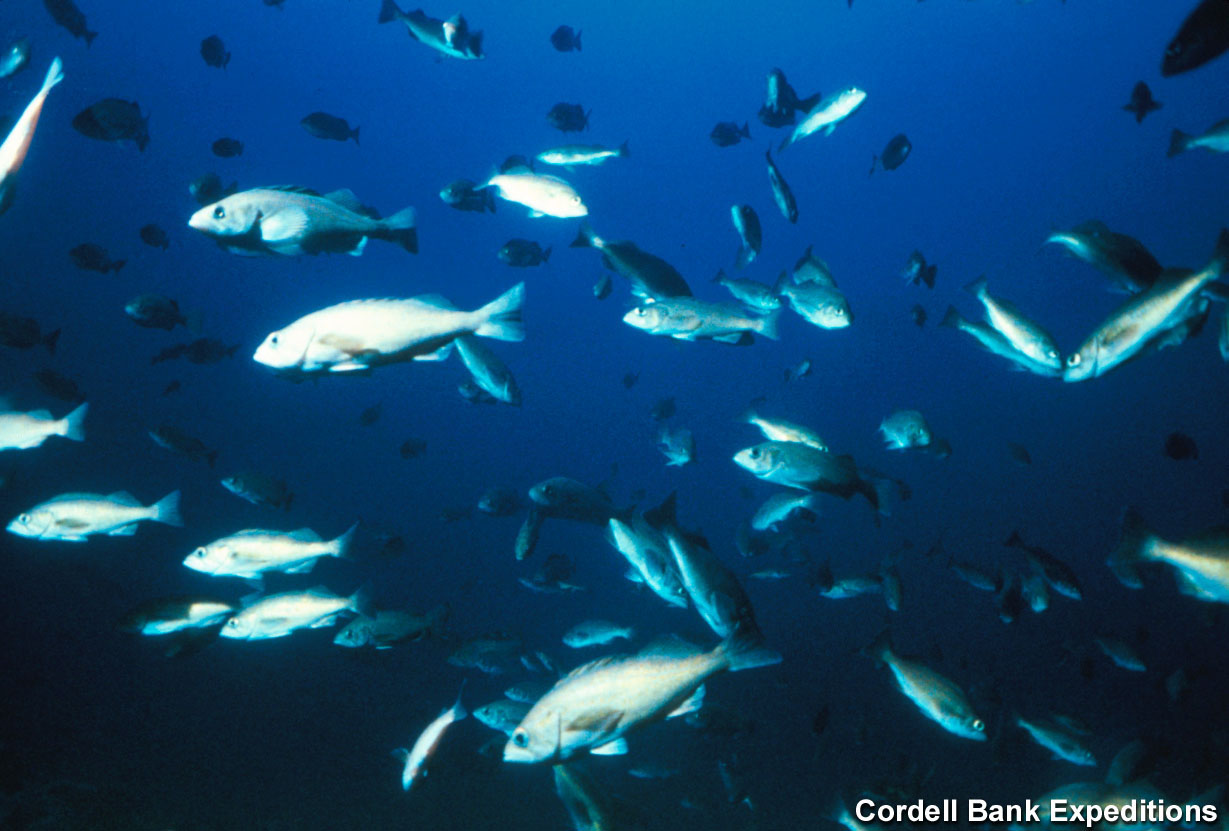Five Deep-Sea Fish on Brink of Extinction

A new study finds five deep-sea creatures are in critical danger of being fished into extinction.
Researchers examined surveys of roundnose grenadier, onion-eye grenadier, blue hake, spiny eel, and spinytail skate in the northwest Atlantic Ocean.
Both the onion-eye grenadier and blue hake have been commercially fished, and all five are taken accidentally by fishers going after other catch.
99.6 percent decline
Declines over a 17-year period through 1994 were steep for all five fish, ranging from 87 to 98 percent. Data through 2003 for the roundnose and onion-eye grenadiers showed declines over the 26-year period for these two species were 99.6 percent and 93.3 percent, respectively.
The researchers estimate that in three generations, the decimation of all five species will reach 99 to 100 percent. According to the World Conservation Union's (IUCN) criteria, these species qualify as critically endangered.
The data were obtained from the Canadian Department of Fisheries and Oceans.
Sign up for the Live Science daily newsletter now
Get the world’s most fascinating discoveries delivered straight to your inbox.
The study shows how quickly overfishing can affect deep-sea species, as none of these fish were fished in any substantial number before the 1970's.
No fast rebound
Deep-sea species are particularly vulnerable to overfishing. They can live for 60 years and not reach sexual maturity until their teens, so these dramatic declines have occurred within a single generation. Recovery is not swift, since deep-sea fish typically produce few offspring.
The decline of one species can affect the rest of the ocean.
"Species declines change predator-prey dynamics, energy flow through systems, and ecosystem resilience, stability, function, and form," study author Jennifer Devine of Memorial University told LiveScience.
The species have also shrunk in size over the same period. Each normally grows to more than 3 feet in length. But all of the species except for the spinytail skate declined in mean length by 25 to 57 percent over this period.
This is the first study of its kind to focus on deep-sea fish. Previous research has shown that overfishing has lead to declines in oceanic cod, sharks, rays, tuna, marlins, swordfish, sea turtles, and several species of shellfish.
The research is detailed in the Jan. 5 issue of the journal Nature.
- Without Sharks, Food Chain Crumbles
- Study Says Mediterranean Dolphins Are Too Thin
- Overfishing Puts Stress on Coral Reefs
- Deadly New Sea Creature Lures Fish with Red Lights
- Elusive Giant Squid Finally Photographed
- Ice Shelf Collapse Reveals New Undersea World










